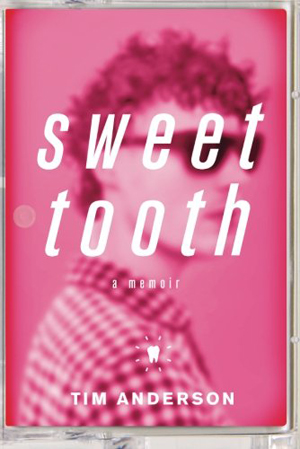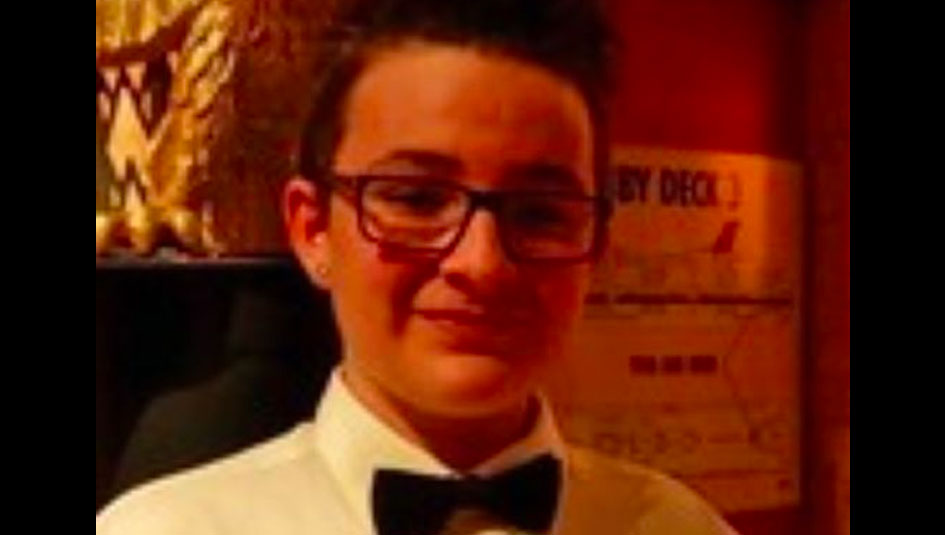
In Sweet Tooth: A Memoir, Tim Anderson describes growing up gay and with Type 1 diabetes in the 80’s. In this edited excerpt, the third of five, Tim describes how he learned to take care of his diabetes from an unpleasant woman.
I’d had to digest a lot of information during that week at Rex Hospital in Raleigh—especially when, by all rights, I should have been sunning myself on an upstate New York lakeshore instead of lying in a hospital bed learning which of my fingers would deliver the best blood specimen (the middle one).
Thankfully I had an excellent target for my scorn and teenage hatred during that hospital stay: my day nurse, Kimberly. Kimberly was my very own Nurse Ratched. She could not care less that I was terribly unhappy and lonely and sexually frustrated and also scared and newly diabetic. She found me and my tedious emotions exceedingly boring.
I knew I hated her from the very first time I pressed the call nurse button and she stormed in and said, “What do you want? I’m busy!” This was a woman who didn’t let herself get too emotionally involved with her patients. Also, this was a woman who had a fuse as short as her unibrow was long.
One morning she brought me a packet of information spelling out the indignities I was going to be subjected to for the rest of my life, beyond just the pricking of fingers and the injecting of insulin. This packet spelled out the lifestyle changes: the dietary restrictions, the daily regimen of prickings followed by shots followed an hour later by eating, the reduction in salty and potatoey snacks, the regular visits to medical specialists, the need to maintain consistency every day in what I ate, what I did, and the insulin dosages I took so that I wouldn’t throw my young but vulnerable body into a mad whirlpool of circulatory confusion.
Kimberly stood next to me as I flipped through the packet and its various papers, and she answered my quivery questions with the compassionate concern of a Venus flytrap. At one point, I became overwhelmed with all the information coming at me, and I started tearing up. Kimberly sighed and handed me a tissue.
As I wiped my eyes and tried to get my lip-wobbling under control, I began to feel that maybe this would be our breakthrough moment. Her heart would be touched by my show of young fragility, she would take my hand, look into my eyes, and say, “Tim, it’s going to be OK. You’re going to get through it. And I’m going to help you.” Instead what I got was: “Well, you’re just going to have to get used to it. It’s your life now. The sooner you suck it up and face that, the better off you’ll be.” She did look me in the eyes, at least.
Even as I looked around for something to throw at her as she left, it occurred to me: Wow, I’m really getting on her nerves. And as much as I hated to have to say it, she was right. I had a disease, a disease that used to kill people just a few decades ago but that now folks are able to live with relatively healthily if they take care of themselves. I basically needed to buck up, learn what I needed to learn, and stop whining.
During the week I was at Rex I simultaneously loathed Kimberly and appreciated her honesty. Sure, she had an irritating tendency to roll her eyes and sigh whenever she entered my room, but she would kind of justify her existence at least once a day. Like when she commented upon my stress eating by saying, “You know, just because your mom brought you three packets of Nabs this morning doesn’t mean you have to eat every one.” My response to this type of thing was usually just a silent dimming of my eyelids, because the lady spoke the truth.
“Hi, honey.” Mom walked into the room just as Kimberly left one day. “Oh, hi, Kimberly! You’ve been so good to us, thank you so much.”
Mom’s effusive courtesy toward Kimberly was really starting to become a problem.
“Oh, you’re welcome,” Kimberly replied in a singsongy voice, as if she were Julie freaking Andrews all of a sudden. She then contorted her mouth into the shape of a human smile, turned, and walked out.
“Here,” Mom said, turning back to me. “I got you some sugar-free chocolate. They had some at the Diabetes Center.”
 She placed the chocolate bar on the tray next to my bed. See, Tim? When God shuts a chocolate door he opens a sugar-free chocolate window. I picked it up and opened the wrapper.
She placed the chocolate bar on the tray next to my bed. See, Tim? When God shuts a chocolate door he opens a sugar-free chocolate window. I picked it up and opened the wrapper.
“It doesn’t look too bad,” Mom said. “But the lady at the store said you shouldn’t have more than two squares at a time, otherwise it’ll really mess up your stomach.”
I settled for one square. It was gross.
To order Sweet Tooth: A Memoir, go to http://www.amazon.com/Sweet-Tooth-Memoir-Tim-Anderson/dp/1477818073.
Excerpted with permission from Lake Union Publishing from Sweet Tooth © 2014 by Tim Anderson. All rights reserved.
Thanks for reading this Insulin Nation article. Want more Type 1 news? Subscribe here.
Have Type 2 diabetes or know someone who does? Try Type 2 Nation, our sister publication.







